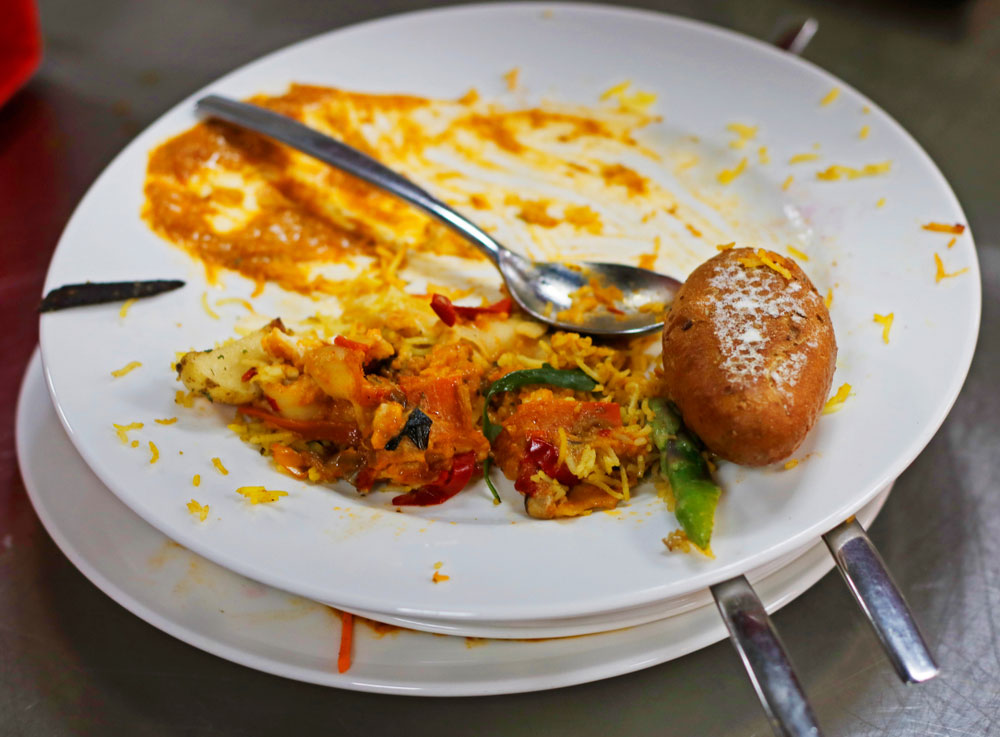Did you know that over a third of all food produced worldwide is wasted? One of the biggest industries contributing to the food waste epidemic is restaurants. Not only is food waste causing irreparable damage to the environment, but it is also impacting profits in the restaurant industry and costing restaurant owners a small fortune.
Did you know that a third of all food produced worldwide is wasted? One of the biggest industries contributing to the food waste epidemic is restaurants.
According to research, the main causes of food waste in Kenyan restaurants are:
- Preparation – 45%.
- Customer leftovers – 34%.
- Spoilage – 21%.
This suggests that restaurants across the country are overbuying food stock and overfilling customer plates. Overbuying stock means that a lot of food will be thrown away – especially if the food is perishable, such as meat, fish or dairy, or food with a short shelf life, such as bread, fruits and vegetables. Overfilling customers’ plates results in leftovers.
Organise a waste audit
A waste audit allows you to record exactly how much food your restaurant is throwing away. You can then calculate how much money is being lost per month. Pay attention to what foods are being thrown away most frequently, as well as the value of the food that is being thrown away.
For example, you may find that potatoes are thrown away most frequently but that you are also losing a lot of money from meat products, which are thrown away less frequently but cost more money to buy. A waste audit will help you to create a waste reduction strategy.
Keep a restaurant waste management log
This helps to keep track of your waste, to ensure any waste reduction strategies you have implemented are still effective. You can then change your strategies based on what works best for your restaurant.
A food waste management log may also help to keep your staff accountable and ensure they are following procedures. A waste log does not have to be time-consuming; it can be as simple as weighing the food disposal bin before it is collected each week.
Train your staff really well to reduce food waste
Start your attempt to sufficiently reduce food waste by adequately training simple things to your staff. Perform proper and special training to reduce food waste in your restaurant. For instance, teach the cooks the particular tricks on how to slice vegetables, fruits, or meat in order to keep them fresh much longer. To train your staff, you can use training software to easily measure the success of staff training to develop better employee self-potential.
Store the food in the proper storage
Good restaurants are those which have a good inventory system. Try to store your food stock in a proper place. For example, you will put the vegetables and fruits in the fridge. Meanwhile, you will need to put the meat and frozen food in the freezer at a particular temperature. Besides, before you store the stock, you need to pay attention to their label. Check their expiry dates, lot and batch numbers before you maintain them. To make it easier for you to manage your inventory, use an inventory system to avoid food wasting.
Give your customers weekly promo
One of the most effective ways to reduce the waste in your restaurant is by giving your customers a weekly promo. For you ordered too much meat this week and there were just a few customers who order that. Try to make a special promo for your steak menu. Willingly give them a 50 percent discount or by doing ‘buy one get one free’ or anything that can persuade your customer to buy. Sometimes you will need to be creative to instantly attract them more.
POS System for Restaurants
A good restaurant POS System in Kenya can help to monitor Sales vis a vis Inventory in near realtime in an accurate manner. With this kind of system, you can easily know which items are in excess and which menu items are responsible for the highest wastage. This will help you to take immediate corrective measures in order to minimize wastage.
Contact us today on 0700 001779 for a demo/installation of the SimbaPOS Restaurant System in Kenya.

